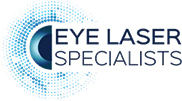If you wear glasses or contact lenses, the thought of getting laser eye surgery may have crossed your mind. Where glasses can fall off and become scratched, and contact lenses can get dry and need frequent replacement, laser surgery can offer you clear vision without depending on these corrective lenses. But laser eye surgery is not for everyone – keep reading to find out if laser surgery is right for you and your vision.
What is Laser Eye Surgery?
Laser eye surgery is a surgical treatment used for vision correction. It uses a highly-precise laser beam, either a femtosecond laser and/or an excimer laser, to modify the way that light rays bend through the cornea. The cornea is the clear dome of tissue at the very front surface of your eye. The laser removes very precise areas of tissue to adjust the curvature of the cornea. Laser eye surgery comes under a group of procedures known as refractive surgery. In addition to procedures that use a laser to reshape corneal tissue, there are also other surgical options. These include lens-based surgery such as clear lens exchange and implantable contact lenses. These other treatment options of refractive surgery that don’t rely on adjusting the cornea can be a good alternative for patients who are not suitable for laser eye surgery.
Laser Eye Surgery Options
 Laser eye surgery encompasses more than one type of procedure. These are the most common:
Laser eye surgery encompasses more than one type of procedure. These are the most common:
- LASIK surgery (laser-assisted in situ keratomileusis)
- PRK eye surgery (photorefractive keratectomy)
- SMILE procedure (small incision lenticular extraction)
All of these techniques utilise a laser beam but vary in the steps of their procedure. There are also differences in recovery time, costs, and risk of complications.
When is Laser Eye Surgery Appropriate?
Laser eye surgery aims to reduce or eliminate your reliance on contact lenses and glasses for the correction of blurred vision. People who are dependent on their glasses or contact lenses are those who would find it difficult to perform their daily tasks without them, such as working, driving, shopping, walking, or even leisure activities like watching TV or playing sports.
People who use wear glasses only for very limited activities, such as only for driving very long distances on unfamiliar roads or only reading glasses for long workdays on the computer, will not be likely to find many benefits from undergoing eye surgery.
Similarly, if you only wear contact lenses for playing sports at night twice a week but during the day and for every other activity you don’t feel you need vision correction, laser eye surgery would not make sense for you.
For most patients, laser surgery is used to correct their vision for distant objects. If you have excellent unaided distance vision and use only reading glasses, refractive surgery is most likely not for you.
Who Is Eligible for Laser Eye Surgery?
The eligibility criteria for laser eye surgery encompasses a number of factors and will also depend on which type of procedure you’re considering.
Your suitability for laser surgery will be determined at your initial consultation with your surgeon. At this appointment, he or she will discuss your visual demands, your lifestyle, and your expectations from your post-procedure vision. You will also need a comprehensive eye and vision exam and some specific biometric measurements taken of your eyes.
Factors that your eye surgeon will consider when assessing you for your suitability for laser eye surgery and for which specific procedure include:
Age
People who are under the age of 18 will often have an unstable vision as the eyeball is still growing and refractive error is changing. Conversely, those approaching the age of 45 will find that their near vision is beginning to decline with a natural age-related condition called presbyopia.
Medical history
If you’re not in good health, undergoing a laser procedure may present more risk than is worthwhile. For example, uncontrolled rheumatic conditions can increase your risk of dry eyes, while a compromised immune system can impact your recovery.
Other vision problems
If your vision is affected by other conditions such as cataracts, laser eye surgery will have limited benefit. You may still have treatment options available depending on the nature of your vision problems, such as cataract surgery and implantation of intraocular lenses.
Corneal thickness
If you have thin corneas, this can limit which treatment options are available to you. For example, LASIK surgery is less safe for those with insufficient corneal thickness as it requires the formation of a thin flap.
Refractive error
Every procedure has a recommended prescription treatment range. For example, LASIK, SMILE, and PRK can correct myopia up to reasonably high degrees, as well as moderate levels of astigmatism. However, while people with hyperopia may be eligible for LASIK and PRK, they will not be suitable for SMILE.
Deciding if Laser Eye Surgery is Worth it for You
The decision about undergoing refractive surgery is one that can be discussed with your surgeon, family, and friends.
 Recovery
Recovery
Can you afford the recovery time? You will need to take some time out from work and your usual activities.
The duration of this depends on which procedure you have and the activity in question and can range from a few days to over a month.
For example, during your healing process, you will be using eye drops and may need to avoid contact sports.
Cost
The fee for each type of laser surgery will vary based on a number of factors. Do your research regarding costs, as well as confirm any contribution from your private health insurance.
Risks
All surgery comes with risks. This can include infection, inflammation, problems with eye pressure, and over- or under-correction (requiring a later enhancement procedure). Generally, however, laser eye surgery is typically considered very safe with a low rate of complications.
To make a fully informed decision, be sure to gather as much information as possible for Laser Eye Surgery in Melbourne.. Call (03) 9070 5788 today.
Note: Any surgical or invasive procedure carries risks. Before proceeding, you should seek a second opinion from an appropriately qualified health practitioner.
References
Laser eye surgery
https://www.healthdirect.gov.au/laser-eye-surgery
Eyes – laser eye surgery
https://www.betterhealth.vic.gov.au/health/conditionsandtreatments/eyes-laser-eye-surgery




